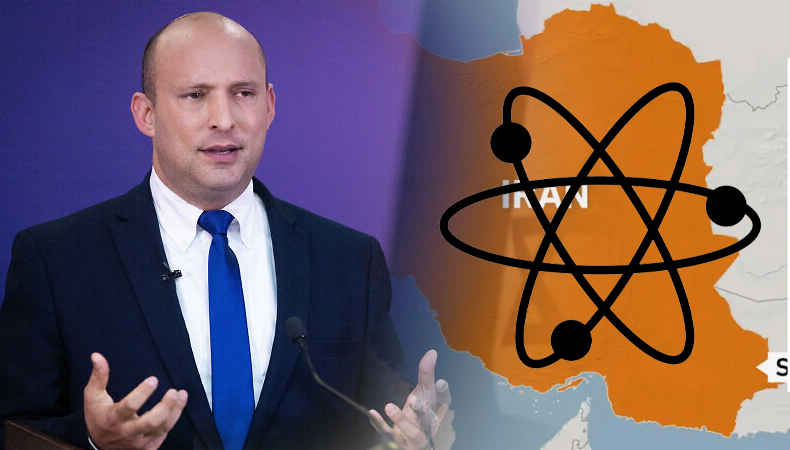Israeli authorities claim to have blocked Iran nuclear deal

This week, a single word said by US Vice President Joe Biden to a protester caused a great deal of commotion in Israel. The activist reportedly pushed Biden to declare the Iran nuclear deal dead in a recently leaked video of their brief Nov. 3 encounter. He said, basically burying the drawn-out, complex negotiations between Iran and international powers on reconstituting the pact, which have profoundly concerned Israel ever since the Democrats took office almost two years ago.
Naftali Bennett, a former prime minister of Israel, was quick to claim responsibility for the agreement’s failure. Through a combination of diplomatic and other efforts, Bennett wrote on Twitter, “quietly and intelligently, we managed to block the return to the nuclear accord without causing a gap with the US.”
Bennett, who held office during the first few months of the Biden administration, claimed that his government’s actions had not only blocked the nuclear accord but also undercut Iranian-sponsored terrorism by targeting its planners on Iranian soil. In an acidic allusion to the disputes between his predecessor Benjamin Netanyahu and the Obama administration over the initial 2015 Iran agreement, clashes that harmed US-Israel relations but fell short of their goal, he continued, “I hope the next government maintains on this track.
Biden’s statement contradicts intelligence reports from Israel that made clear recommendations to decision-makers just a few months prior that the conclusion of an agreement with Iran was imminent because both parties were committed to seeing it through. Mossad Director David Barnea even convened a series of high-level meetings in Washington in September in what was described as a last-minute attempt to undo a deal that appeared to be imminent. Barnea had led a highly unusual public campaign against such a result, which earned him a reprimand from Bennet’s successor, Yair Lapid.
Read | Israel Spy Agency Warns Iran May Expand Supply of Advanced Weapons to Russia
Looking back, Barnea and other prominent officials continue to hold fast to their pessimistic assessment of the situation and maintain that the deal with Tehran was finalised right up until the last second. According to a senior Mossad official who spoke to Al-Monitor recently on the condition of anonymity, “The papers were ready to be printed for signing.” Both parties could see that this was about to occur. There was no room for doubt, and this is how they acted.
Then, once both Iran and the United States made tactical decisions to proceed, what threw the accord off course? Israeli intelligence officers claim that three variables influenced this result.
The first was the unrest that broke out in Iran in September after Mahsa Amini passed away while in police detention. On condition of anonymity, a diplomatic official told Al-Monitor, “Once images, rumours and stories of the violent crackdown on anti-government protestors began to emerge, the Democratic administration, a stickler for human rights, found it very hard to negotiate a deal with Tehran.”
Israel is certain that the likelihood of concluding the nuclear deal decreased the more violent these rallies became, including the execution of protestors and deadly fights. Dealing would have been seen as a betrayal of Democratic principles and would have had a negative impact on Democratic hopes in the midterm elections in November.




